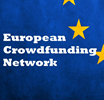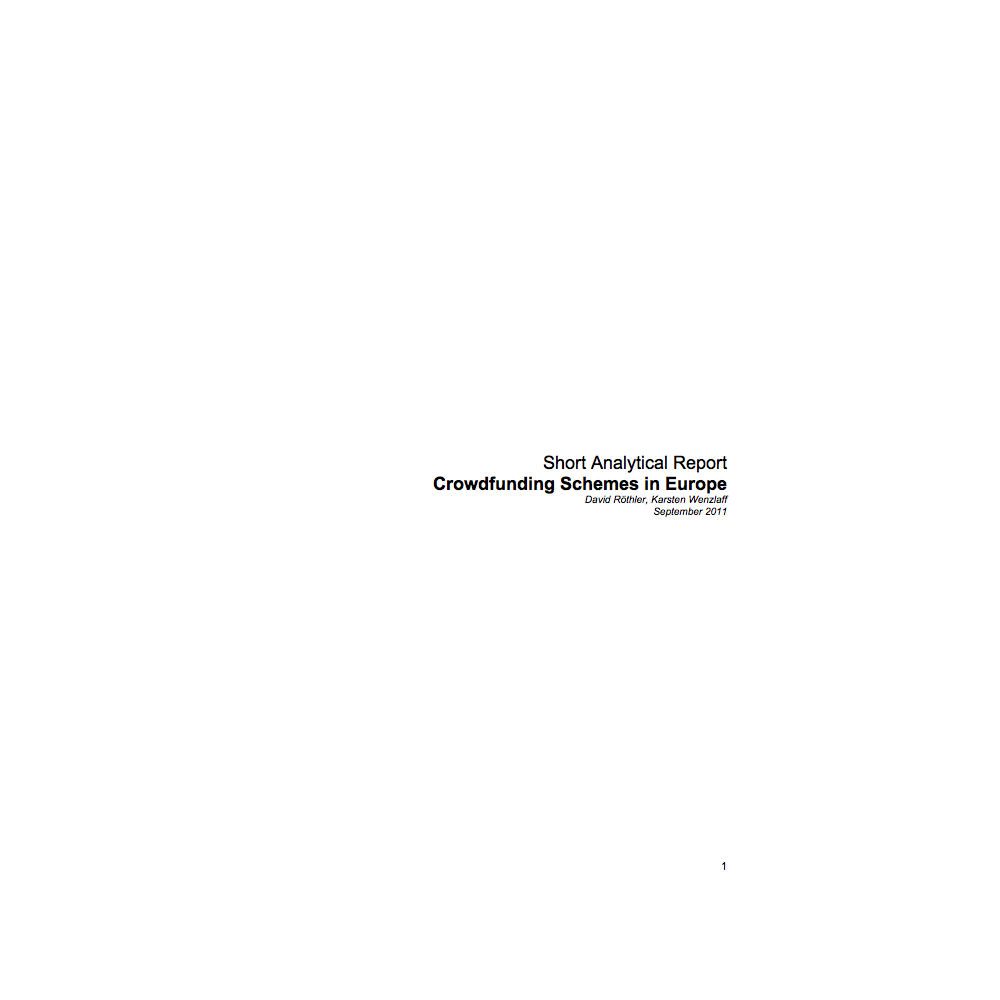How to convince the European Union support the new crowdfunding industry? This was part of the discussion of the Pre-Launch Meeting of the European Crowdfunding Network in Brussels on 1st June 2012. Present were three dozen crowdfunding platforms and Crowdfunding experts from all over Europe. The meeting managed to create an exchange on regulatory issues, but to unite the diverse crowdfunding scene behind a single cause was still difficult. Could jobs, growth, innovation or disruption be such a mobilizing argument? A comment by Karsten Wenzlaff
The European Crowdfunding Network is a good idea – networking, exchanging information, lobbying the European Union and national legislators, creating industry codes and disseminating information about this emerging industry to the public is an important task. Therefore a lot of praise is due to the organizers of the European Crowdfunding Network who assembled a group of people dedicated to push for a better visibility of the emerging crowdfunding scene.
Sherwood Neiss, one the driving forces behind the JOBS Act in the US and author of the startup-excemption, kicked off the meeting by explaining how he and his colleagues lobbied the American goverment and Congress to make crowdinvesting possible.
In Europe, of course, the situation is a little bit different. There are already a number of platforms working and fulfilling the requirements of European Financial Markets Regulation and Supervision. Crowdlending, peer-to-peer-lending, crowdinvesting, crowdsourcing with share-revenue and pre-selling is possible and a number of platform have managed to find a business modell that at least is not illegal.
So unlike the American Crowdfunding Leadership Network, which had a clear aim by pushing for specific legislation, the ultimate goal of the European Crowdfunding Network remains a little bit fuzzy. Given the fragmented market in Europe, the different regulatory environments for Crowdfunding inside the European Union and the relative small scale of crowdinvesting in Europe, it is of utmost importance to create a unified and strong message to the European Union.
The meeting was held under Chatham House Rules, therefore attribution of quotes was not allowed. However, the sentence that I found most relevant to discuss was „You have to sell them, what they want to buy.“ The sentence was of course aimed at desires of policy makers with regard to crowdfunding. The argument was that the most relevant policy goals in Europe right now are creating jobs, spurring growth and stabilizing the financial system.
Therefore, it was argued, the European Crowdfunding Network should send the following message:
„Through crowdfunding, entrepreneurs will have access to capital, create innovative products and services, create jobs and contribute to economic growth. Crowdfunding is a more reliable, long-term and local investment method than any other investment method in the market and it will help to stabilize the financial system.“
While I personally think that such a message would resonate within European policy makers, there are a few things that need to be addressed:
- Disruptiveness: Crowdfunding is not only creative, but like every new technology also discruptive. It threatens existing business models, but more importantly it might initiate a change of paradigm on how entrepreneurs can succeed. We need to show that the Crowdfunding platforms and experts are willing to share knowledge.
- Proof-of-innovation: While Kickstarter and Indiegogo have a number of showcases which exemplify the innovative potential of crowdfunding, it still remains to find and portray innovative companies which have been crowdfunded in Europe. There are a few examples, but they need to be collected on a European level and made available to a non-expert audience.
- Proof-of-jobs: The crowdfunding platforms need to collect data and publish them about the jobs generated in the start-ups being financed. This industry data needs to be made available to the European Institutions. Unfortunately, the meeting in Brussels did not allow the time to come up with a concrete agreement on this data, but I think that it is one of the most urgent tasks.
- Immediate Communication: I would urge my colleagues in the European Crowdfunding Network to think about how we could immediately push crowdfunding. It seems that crowdfunding would fit very well with Barroso’s strategy for South Europe, with Hollande’s Growth Strategy for Europe in general, but because of its prudence for the financial markets also with Merkels austerity strategy. Why shouldn’t it be possible to contact them and convince them that crowdfunding is a good idea.
Conclusion: The Pre-Launch-Event was a great first step with some great ideas on industry codes and common initiatives. The main goal now is to get very quick results from these deliberations, in order to keep the momentum.
A list of twitters present at the PreLaunch-Meeting can be found here: https://twitter.com/#!/kasi/eurcrowdfundingnet




One Reply
-
Pingback: Jobs, growth, innovation or creative disruption – how to sell Crowdfunding to the European Union? | Crowdfunding World | Scoop.it
Comments are closed.